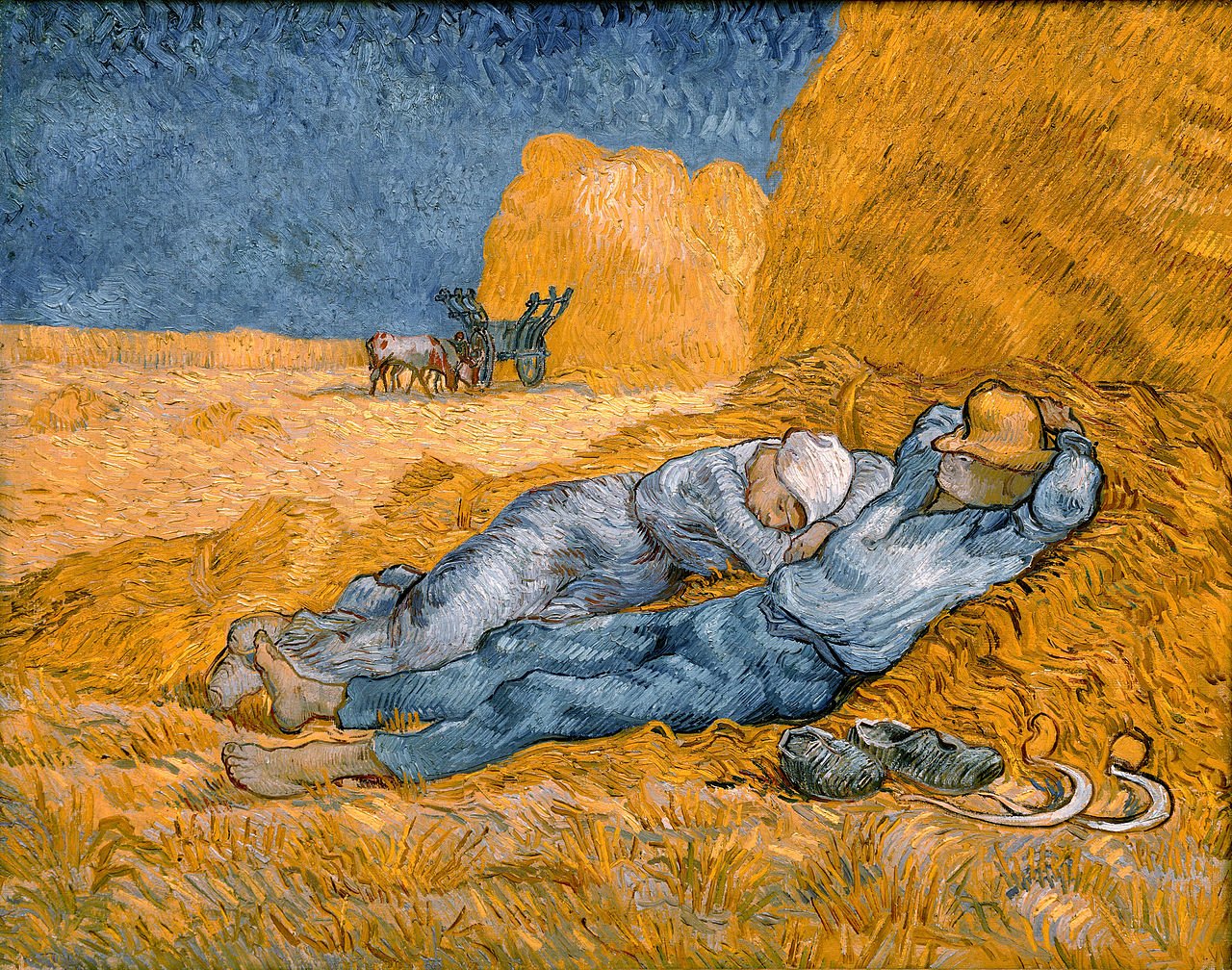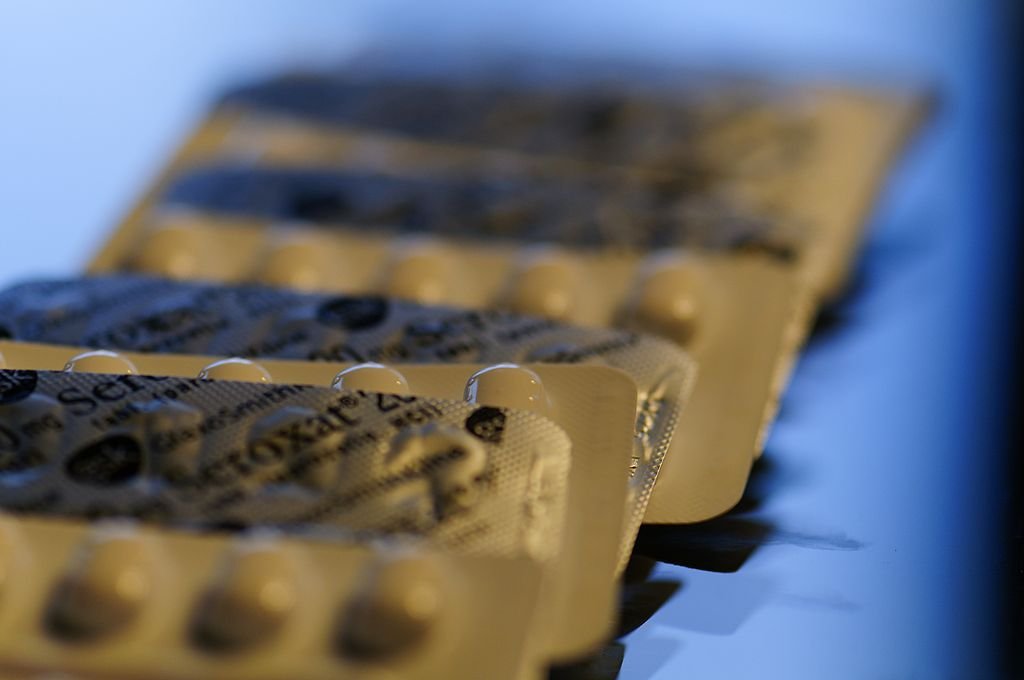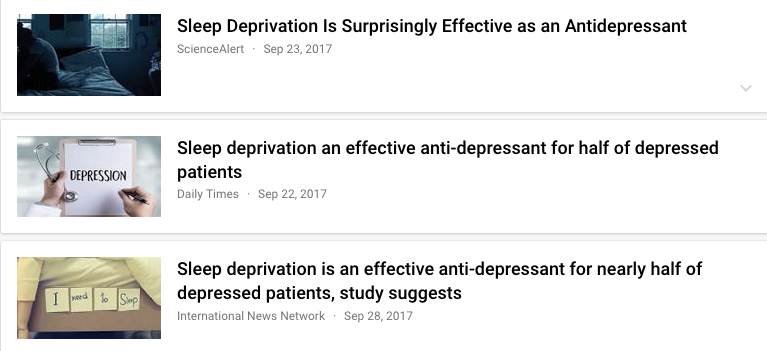Recent claims that sleep deprivation is an effective treatment for depression demonstrate a common problem with press releases in science journalism.

Noon – Rest from Work (after Millet) by Vincent van Gogh, 1890. Location: Musée d'Orsay, Paris.
Misleading press can hurt science
Press releases are a common source of scientific information for news publications, and it's essential that they relay information accurately. Unfortunately this isn't always the case. To reach the widest audience possible, institutions that distribute press releases are incentivized to make new science sensational, which can harm accuracy and integrity in science news.
In 2009, an analysis of press releases published by academic medical centers showed that 58% failed to mention relevant caveats that would affect a study's interpretation, and 29% exaggerated the importance of a study's findings.
For example, Penn Medicine News of the University of Pennsylvania (or Penn, where I am a student) recently published a press release titled "Sleep Deprivation is an Effective Anti-depressant for Nearly Half of Depressed Patients." While this makes for a sexy headline, it is an absurd and dangerous claim to publicize. After reading the original paper that the release is based on, it's not hard to see why.
Sleep Deprivation and Depression
Penn's press release simply states that "sleep deprivation is an effective anti-depressant for nearly half of depressed patients" and suggests that the findings of this study can offer relief for the 16 million adults who experience an episode of depression in a given year. I wish that were true, because it be an incredible benefit to many people. Yet like many press releases, this one both exaggerates its study's findings and fails to mention caveats that would dramatically affect its interpretation.
The heart of the issue here is the use of the phrase "effective anti-depressant." It's worth noting that since anti-depressants (or just "antidepressants") commonly refer to drugs that treat depression in humans, it is a bit unconventional to refer to sleep deprivation as an antidepressant. Current antidepressant drugs are by no means perfect (they may have side effects, take several weeks to work, and often people do not respond to them), but they are shown to be an effective long term treatment for depression in around 50% of people. Sleep deprivation, however, has not been shown to be so useful.

Seroxat (paroxetine), an antidepressant drug (photo by Jussi Mononen)
Problem: there are few control groups
It is a hallmark of scientific experiments to test a control group against an experimental group. This protects results from researcher bias and false conclusions. In the case of sleep deprivation, the experimental group would consist of people diagnosed with depression who experienced sleep deprivation, while a control group might consist of people diagnosed with depression who were not sleep deprived.
However, 91% of the data sets in the paper came from studies that "did not use control groups." This makes it much harder, if not impossible, to establish a causal link between sleep deprivation and effective depression treatment. This huge limitation was not mentioned by Penn Medicine News.
Problem: most people relapse from treatment
If someone sold me an fridge that spoiled my food after a few days, I'd be pretty mad about it. If something is branded as an "effective anti-depressant" it had better be work long enough to help people. But that's not what sleep deprivation does:
"The disadvantage of SD [sleep deprivation] is that the effect is not stable. In more than 80% of responders to SD, a relapse into depression occurred after the recovery night." (Henmeter et al., 2010)
Penn's press release failed to recognize this crucial point. However, the authors of the study (who used data most often collected within a day of patients' sleep deprivation) took note:
"The availability of an antidepressant treatment that has rapid effects in 50% of patients would mark a radical improvement in clinical practice, if we can find ways to maintain the effects over time." (Boland et al., 2017)
That "if" here is crucial. While sleep deprivation is remarkable for its temporary antidepressive effects, it offers no long term solutions to treat depression. It is an absolute misrepresentation of the study to say that it is an effective antidepressant.
Irresponsible Press Has Ripple Effects
News spreads fast, and a story can change as its whispered down the lane. The student newspaper at the University of Pennsylvania recently regurgitated this press release, but also added that "medical professionals are recommending partial sleep deprivation" to people seeking treatment for depression. If your doctor suggests this, find a new one. By spreading misrepresented information, a bad press release can end up leading to bad medicine and public misinformation.

Screenshot of a Google News search of the press release's headline
In many ways, it is not fair to pick on this particular press release, because this kind of thing happens all the time. But since I'm a student at the university it came from, a university where sleep deprivation and depression are both serious issues, it struck a nerve. It's a pet peeve to see information misrepresented, but it feels much worse to see a "depression cure" sensationalized.
America's universities are seriously affected by both depression and sleep deprivation, as shown by a 2014 survey of over 79,000 college students. At least once in the the previous 12 months, 32.6% of students had felt too depressed to function, and 21% of students reported that sleep difficulties had adversely impacted their academic performance. 41.3% of students said that sleepiness was "more than a little problem" during daytime activities. At an upsetting extreme of the college mental health crisis, 14 Penn students have committed suicide since February 2013.
For too many people, college is a mentally challenging place with overwhelmingly large workloads and hopelessly uncertain futures. With all this constantly in mind, it is hard to tolerate an institution whose environment fosters these health problems spreading misleading information about their treatment. Whether you are a member of a community that's impacted by depression, a press release writer, or a scientist, it's important to represent information accurately, or else we risk losing sight of the reason this kind research is done in the first place: to help people.
Sources
American College Health Association. (2014). American College Health Association-National College Health Assessment II: Reference Group Executive Summary Spring 2014. Hanover, MD: American College Health Association. Retrieved from http://www.acha-ncha.org/docs/ACHA-NCHA-II_ReferenceGroup_ExecutiveSummary_Spring2014.pdf
Antidepressant. (2017, October 3). In Wikipedia. Retrieved from https://en.wikipedia.org/w/index.php?title=Antidepressant&oldid=803583267
Boland, E. M., Rao, H., Dinges, D. F., Smith, R. V., Goel, N., Detre, J. A., … Gehrman, P. R. (2017). Meta-Analysis of the Antidepressant Effects of Acute Sleep Deprivation. The Journal of Clinical Psychiatry. https://doi.org/10.4088/JCP.16r11332
Hemmeter, U.-M., Hemmeter-Spernal, J., & Krieg, J.-C. (2010). Sleep deprivation in depression. Expert Review of Neurotherapeutics, 10(7), 1101–1115. https://doi.org/10.1586/ern.10.83
McFadden, J. (2017, September 27). Penn researchers have found that sleep deprivation can improve depression. Retrieved October 4, 2017, from http://www.thedp.com/article/2017/09/penn-researchers-have-found-that-sleep-deprivation-can-improve-depression
Sleep Deprivation is an Effective Anti-depressant for Nearly Half of Depressed Patients. (2017, September 19). Retrieved October 4, 2017, from https://www.pennmedicine.org/news/news-releases/2017/september/sleep-deprivation-is-an-effective-antidepressant-for-nearly-half-of-depressed-patients
Spinelli, D. (2017, September 2). Sigma Alpha Mu acknowledges death of College senior Nicholas Moya in Facebook post. Retrieved October 4, 2017, from http://www.thedp.com/article/2017/09/sigma-alpha-mu-acknowledges-death-of-college-senior-nicholas-moya-in-facebook-post
Thomas Insel. (2011, December 6). Antidepressants: A complicated picture. Retrieved October 4, 2017, from https://www.nimh.nih.gov/about/directors/thomas-insel/blog/2011/antidepressants-a-complicated-picture.shtml
Woloshin, S., Schwartz, L. M., Casella, S. L., Kennedy, A. T., & Larson, R. J. (2009). Press Releases by Academic Medical Centers: Not So Academic? Annals of Internal Medicine, 150(9), 613. https://doi.org/10.7326/0003-4819-150-9-200905050-00007
Until next time

This post is under the CC BY 4.0 License. (?)
